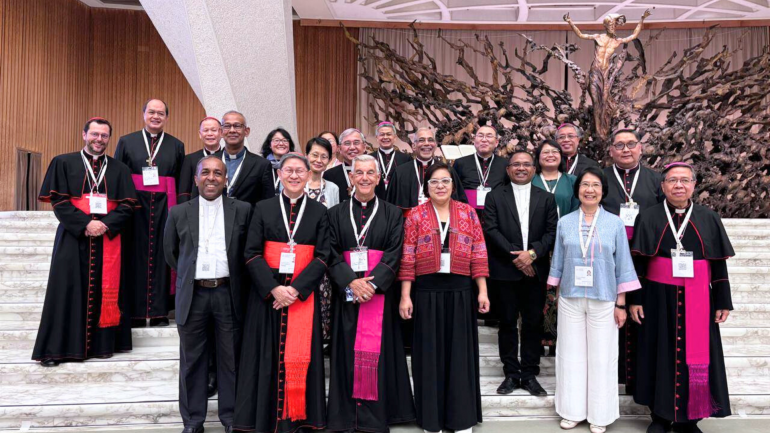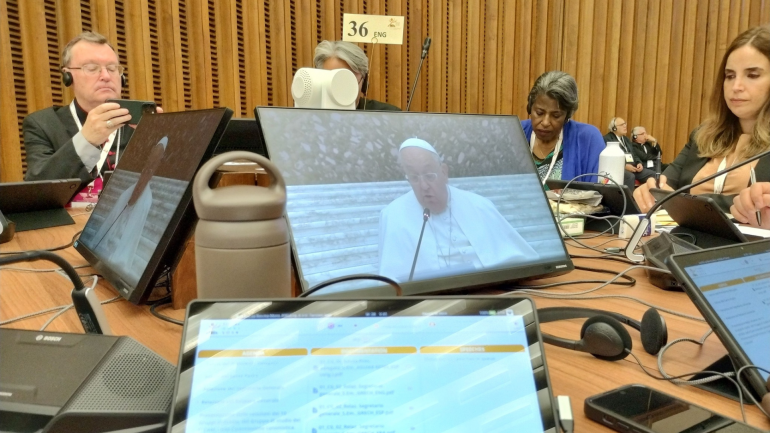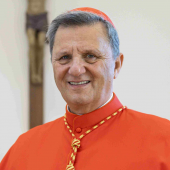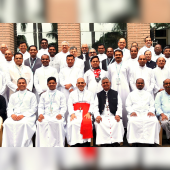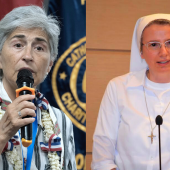Pope emphasizes the vital role of lay participation in a humble, Synodal Church
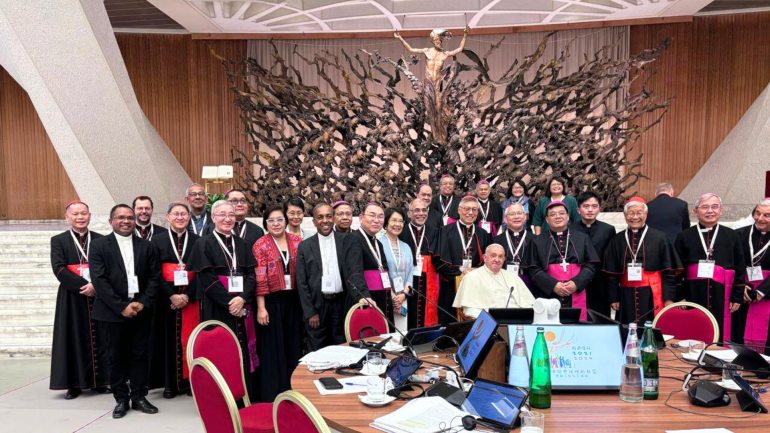
At the opening of the second session of the 16th General Assembly of the Synod of Bishops, Pope Francis underscored the importance of lay involvement in shaping a Church that is humble, inclusive, and guided by the Holy Spirit.
His address highlighted the need for greater collaboration among bishops, laypeople, priests, and religious communities, framing lay participation as essential to the Church's mission of peace, forgiveness, and service.
Reflecting on the journey since the Synod's inception in 2021, Pope Francis emphasized that the Church is constantly evolving, following the mission God has set forth.
He reiterated that this journey is not solely for the hierarchy but is a collective effort that includes the laity.
Lay participation, he noted, is not merely a symbolic gesture but a foundational element that strengthens the Church's relational and communal nature.
"The presence of lay members in the Assembly does not diminish the authority of bishops," the Pope explained, as cited in Vatian News. "Rather, it enriches and affirms the collaborative spirit of the Church, reminding us that no one is saved alone."
Pope Francis also focused on the role of the Holy Spirit in the life of the Church, describing how the Spirit transforms individuals and communities alike.
He stressed that the Spirit guides the Church in moments of uncertainty, inspiring both lay and ordained members to work together for the greater good.
The Holy Spirit, he said, "melts the frozen, warms the chill, and guides the steps that go astray," urging all members of the Church to remain open to its movements.
The Pope called for humility in recognizing the Church's need for forgiveness and renewal, a sentiment that resonated deeply during the Penitential Vigil.
He reminded the faithful that the transformative power of the Holy Spirit is felt through a collective effort—one that includes the voices and experiences of laypeople.
The synodal process, Pope Francis explained, is not a one-time event but a continuous learning journey for the entire Church. The collaboration between bishops and laity reflects the Church's mission to listen, discern, and respond to the needs of the world.
The Pope called the synodal Assembly a "plural subject," where everyone—whether bishop, layperson, priest, or religious—plays a vital role in fulfilling God's plan.
Quoting Saint Paul VI, who established the Synod of Bishops in 1965, Pope Francis reinforced the idea that the Church is constantly renewed by the Holy Spirit.
He described this renewal as being enriched by the wisdom and experiences of laypeople, whose participation brings fresh perspectives and strengthens the Church’s mission.
Pope Francis closed his address with a powerful reminder that the Church’s mission is a shared responsibility, inviting all participants to be open to the Holy Spirit's guidance.
He encouraged lay members to take up their role with confidence, knowing that their contributions are crucial to the Church’s future.
“We are making this journey together,” the Pope concluded, “with hope, humility, and trust in the Lord. Let us walk side by side, guided by the Spirit, for no one can fulfill this mission alone.”
In highlighting the indispensable role of the laity, Pope Francis signaled a renewed emphasis on collaboration and unity, inviting all members of the Church—both ordained and lay—to participate actively in the Church's mission of love and service.
The Asian participants of the Synod, including Cardinal Jose Advincula of Manila, gathered for a photo with Pope Francis. Among them were Archbishop Tarcisius Isao Kikuchi of Tokyo and other notable representatives.
In a social media post, Archbishop Kikuchi shared, "The Holy Father presided over the opening Mass for the second session of the Synod this morning at 9:30 a.m. in St. Peter's Square. All participants—including laity, religious, priests, cardinals, bishops, fraternal delegations, and theologians—processed to the altar."
Radio Veritas Asia (RVA), a media platform of the Catholic Church, aims to share Christ. RVA started in 1969 as a continental Catholic radio station to serve Asian countries in their respective local language, thus earning the tag “the Voice of Asian Christianity.” Responding to the emerging context, RVA embraced media platforms to connect with the global Asian audience via its 21 language websites and various social media platforms.





